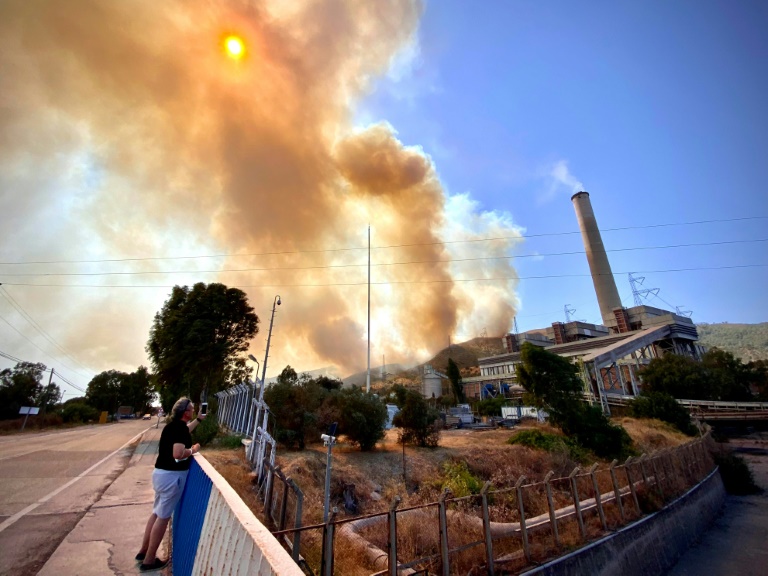Rescuers used helicopters and water cannon Wednesday in a fitful fight to save a Turkish power plant from being engulfed by deadly wildfires testing the leadership of President Recep Tayyip Erdogan.
More than 180 wildfires have scorched huge swathes of forest and killed eight people since breaking out east of the Mediterranean vacation hotspot Antalya last Wednesday and then spreading west.
Their proximity to Turkey’s main vacation destinations has also dented government hopes of a tourist-driven revival of the fragile economy.
The European Union’s satellite monitoring service said their “radiative power” — a measure of the fires’ intensity — “has reached unprecedented values in the entire dataset, which goes back to 2003”.
The Turkish government appears to have been rattled by the scale and ferocity of the flames.
Its media watchdog on Tuesday warned broadcasters that they may be fined if they continue showing live footage of the blazes or air images of screaming people running for their lives.
Most rolling news channels were only showing sporadic reports about the unfolding disaster on Wednesday afternoon.
Erdogan himself has been subjected to days of ridicule on social media for tossing bags of tea to crowds of people while touring one of the affected regions under heavy police escort.
The opposition further accuses the powerful Turkish leader of being too slow to accept offers of foreign assistance — including from regional rival Greece — and failing to properly maintain firefighting planes.
Erdogan prepared to mount a political counterattack in a national television interview scheduled for Wednesday night.
Much of the latest public fear and anger has been directed at a fire that has been threatening the hills around a power plant in the Aegean Sea holiday resort town of Milas.
– ‘We are hurting’ –
An AFP team in Milas saw Turkish workers dig trenches around the plant to keep the flames away.
Turkish helicopters and two firefighting planes from Spain dumped sea water and fire retardant on the surrounding hills and rows of scorched or burning residential buildings.
A group of locals watched the battle unfold from the relative safety of the beach.
The fire seemed to have been almost fully extinguished by Wednesday morning before breaking out again in the hot afternoon sun.
An AFP reporter said some of the flames appeared to have approached within 500 metres (yards) of the plant.
The main opposition party in control of the local mayor’s office said hydrogen tanks used to cool the station had been emptied and filled with water as a precaution.
“We beg, we warn, we’ve been saying it for days — the fire is surrounding the plant,” Milos mayor Muhammet Tokat wrote above a tweet showing yellow smoke billowing from the scene.
“We are hurting. Milas is burning,” he wrote.
Erdogan’s office blamed the very first blazes near Antalya on arsonists that pro-government media linked to banned Kurdish militants waging a decades-long insurgency against the state.
But more and more public officials now link them to an extreme heatwave that has dried up water reservoirs and created tinderbox conditions across much of Turkey’s south.
Experts warn that climate change in countries such as Turkey increases both the frequency and intensity of wildfires.
Turkey’s Agriculture and Forestry Minister Bekir Pakdemirli said temperatures in the Aegean city of Marmaris reached an all-time record of 45.5 degrees Celsius (114 degrees Farenheit) this week.
“We are fighting a very serious war,” the minister told reporters. “We need to keep our morale and motivation high in this war. I urge everyone to be patient.”









